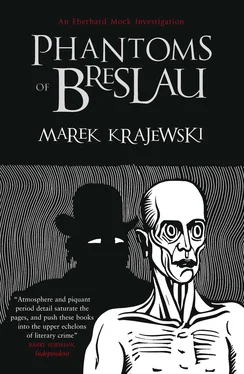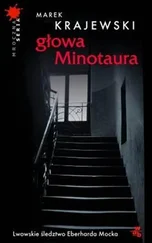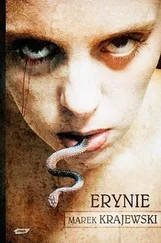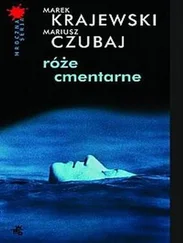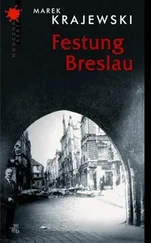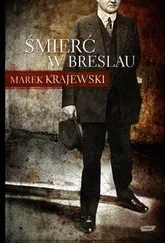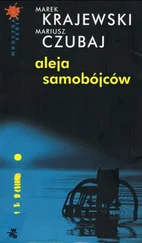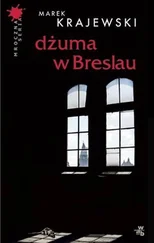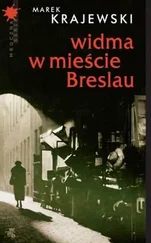Marek Krajewski - Phantoms of Breslau
Здесь есть возможность читать онлайн «Marek Krajewski - Phantoms of Breslau» весь текст электронной книги совершенно бесплатно (целиком полную версию без сокращений). В некоторых случаях можно слушать аудио, скачать через торрент в формате fb2 и присутствует краткое содержание. Жанр: Полицейский детектив, на английском языке. Описание произведения, (предисловие) а так же отзывы посетителей доступны на портале библиотеки ЛибКат.
- Название:Phantoms of Breslau
- Автор:
- Жанр:
- Год:неизвестен
- ISBN:нет данных
- Рейтинг книги:3 / 5. Голосов: 1
-
Избранное:Добавить в избранное
- Отзывы:
-
Ваша оценка:
- 60
- 1
- 2
- 3
- 4
- 5
Phantoms of Breslau: краткое содержание, описание и аннотация
Предлагаем к чтению аннотацию, описание, краткое содержание или предисловие (зависит от того, что написал сам автор книги «Phantoms of Breslau»). Если вы не нашли необходимую информацию о книге — напишите в комментариях, мы постараемся отыскать её.
Phantoms of Breslau — читать онлайн бесплатно полную книгу (весь текст) целиком
Ниже представлен текст книги, разбитый по страницам. Система сохранения места последней прочитанной страницы, позволяет с удобством читать онлайн бесплатно книгу «Phantoms of Breslau», без необходимости каждый раз заново искать на чём Вы остановились. Поставьте закладку, и сможете в любой момент перейти на страницу, на которой закончили чтение.
Интервал:
Закладка:
The butler did not deign to reply and placed the receiver next to the telephone. She knew he always behaved like this when he heard someone introduce themselves with a name not preceeded by a scholarly title. She heard the strains of a piano, merry voices and the tinkling of glasses. The usual sounds of a party being held at the professor’s on a Saturday evening.
“Yes, sister,” Doctor Heintze’s voice was none too friendly.
“That Doctor Ruhtgard from the Department of Contagious Diseases, Professor, is bossing everyone around and giving me instructions as to that …”
“Ah, I know what this is about, Sister,” Doctor Heintze interrupted her snappily. “Please listen to me carefully. You may regard all of Doctor Ruhtgard’s instructions as if they were my own. Do you understand me, Sister?” The receiver crashed onto its cradle.
Sister Hermina was no longer annoyed, but curious. Who was this old man with concussion and a double fracture of the leg? Most certainly someone important. That’s why Ruhtgard had told them to transfer him to a private room and look after him night and day, despite the shortage of staff. And now this son of his … Elegant and arrogant.
Sister Hermina made her way down the corridor towards the private room where the older Herr Mock lay. The rustle of her starched housecoat and the sight of the broken wings on her bonnet animated the patients and filled them with hope. They propped themselves up in bed and paid no heed to their pain, certain that in a short while, with a single injection and an understanding glance, Sister Hermina would take them to a land of gentleness and peace. Their hopes, however, were in vain. Sister Hermina knocked on the door of the private room and, getting no reply, entered. It was hardly surprising no-one had invited her in: the older Herr Mock was lying unconscious while his son was pressing his father’s hand, riddled with needle marks, to his lips. She looked at the younger Herr Mock and was disgusted. She was always disgusted at the sight of a grown man crying.
BRESLAU, THAT SAME SEPTEMBER 27TH, 1919
ELEVEN O’CLOCK AT NIGHT
Sister Hermina, urine bottle in hand, approached the door to the private room and opened it wide, certain she would see the two men asleep again. One of them, as Sister Hermina told herself somewhat bombastically, had been lulled by physical pain, the other by spiritual. This time Sister Hermina’s otherwise faultless intuition had let her down. Neither of them was asleep. The older Herr Mock interrupted some lengthy utterance when he saw her and took the bottle with visible relief. The younger Herr Mock, obviously not wishing to disturb his father, went into the corridor and lit a cigarette. Sister Hermina carried out the embarrassing object and, remembering Doctor Heintze’s harsh words, restrained herself from pointing out to the smoker the unsuitability of surrendering to such a pernicious addiction in a place like this. The younger Herr Mock, as if reading her thoughts, extinguished the cigarette with his shoe, wrapped it in a scrap of paper and went back into the room. The sister slid the urine bottle onto the lower part of her trolley that was stacked with clean sheets, removed her impressively large bonnet and pressed her ear to a gap in the door.
“If you’d been at home at the time,” she heard the sick man’s muffled moan, “you’d have scared off that burglar who made such a racket in the night …”
“It wasn’t a burglar, Father,” the hoarse, bass voice interrupted him. “Burglars don’t make a noise … If you’d agreed to move out of the house, if you weren’t so stubborn, this accident wouldn’t have happened …”
“If, if …” The older man must have been regaining his strength since he was aping his son so well. “What a louse … Telling me it’s all my fault… Is that it? My fault? Who was it who went off with some whore to God knows where, and left the old man alone without any help? Who? Father Christmas? No, my own son, Eberhard … No-one else but he … And you, old man, you can snuff it, it’s time for you to go … That’s how grateful he is to his father …”
“And what, in truth, should I be grateful to you for, Father?” Sister Hermina had heard that tone many times before, that suppressed timbre. This was the way people spoke who, on learning of the death of someone close to them, were trying desperately not to show their weakness. Intonation through the whole range of notes, like in an adolescent boy.
Silence. Steam hissed in the sterilising units, patients groaned in their sleep, the kidney-shaped metal dish containing Herr Hadamitzky’s cancerous tissues clattered against the flagstones of the operating theatre; the hospital was falling asleep; the cockroaches under the sinks and in the damp crannies beneath the sewer pipes were waking.
In the gap of the door left ajar appeared the eye as well as the ear of Sister Hermina. The sick man was gripping his son’s hand tightly. The two hands with their short, fat fingers were identical.
“You’re right.” The older man’s voice wheezed like that of a dying man. Pain crossed his face in waves. “Any ass can have it off and spawn. You’re right … That’s all you have to be grateful to me for …”
The son squeezed his father’s hand so hard that Sister Hermina could have sworn it made the old man’s leg jump, even though it was encased in stiff wooden splints.
“I’ll never leave you again,” the son said.
He stood up and rushed to the door. Sister Hermina sprang away. The departing visitor had a strange glint in his eyes as he passed her. “He must have noticed my embarrassment,” she thought as she adjusted her bonnet. Her dry, downy cheeks glowed. “And he’s going to think I’m knocked out at the sight of him.”
Sister Hermina was wrong. She was the last person Criminal Assistant Eberhard Mock was thinking about at that moment.
BRESLAU, THAT SAME SEPTEMBER 27TH, 1919
A QUARTER PAST ELEVEN AT NIGHT
A new Adler stood on Korsoallee opposite Doctor Rossdeutscher’s grand villa. Four glowing cigarettes betrayed the presence of the passengers inside. Similar lights glowed beneath two large linden trees next to the villa’s railings, spiked like flames. The windows of the house were lit up, and through the partially lowered blinds came the sound of raised voices, as if someone were arguing or taking a ceremonial oath.
A solitary man appeared in the silent street. There was a cigarette glowing in the corner of his mouth too. He approached the car and pulled open the back door on the driver’s side.
“Move up, Reinert,” he said hoarsely. “I’m not slim enough to squeeze in next to you any more.”
“It’s Mock,” Reinert said, and obediently moved across the seat.
Mock looked around the interior of the dark car and recognized other police officers from the Murder Commission: behind the steering wheel sat Ehlers, and the back seat was occupied by the inseparable Reinert and Kleinfeld. Next to the driver was a man in a top hat with his fat thighs spread across the seat. Mock did not recognize him.
“Tell me, gentlemen,” Mock whispered, “what are you doing here? And what about those clever investigators by the trees? Their cigarettes are visible from the banks of the Oder. Everyone leaving the Am Alten Oder tavern is asking himself: who are those two lurking beneath the trees? Don’t you think Doctor Rossdeutscher’s servants might be asking themselves the same question?”
“The servants aren’t home,” Ehlers said. “The cook and butler left the house at about six.”
“Who’s this?” said the stranger in the top hat. A monocle gleamed in one angry eye. “And what right has he got to be asking such questions?”
Читать дальшеИнтервал:
Закладка:
Похожие книги на «Phantoms of Breslau»
Представляем Вашему вниманию похожие книги на «Phantoms of Breslau» списком для выбора. Мы отобрали схожую по названию и смыслу литературу в надежде предоставить читателям больше вариантов отыскать новые, интересные, ещё непрочитанные произведения.
Обсуждение, отзывы о книге «Phantoms of Breslau» и просто собственные мнения читателей. Оставьте ваши комментарии, напишите, что Вы думаете о произведении, его смысле или главных героях. Укажите что конкретно понравилось, а что нет, и почему Вы так считаете.
